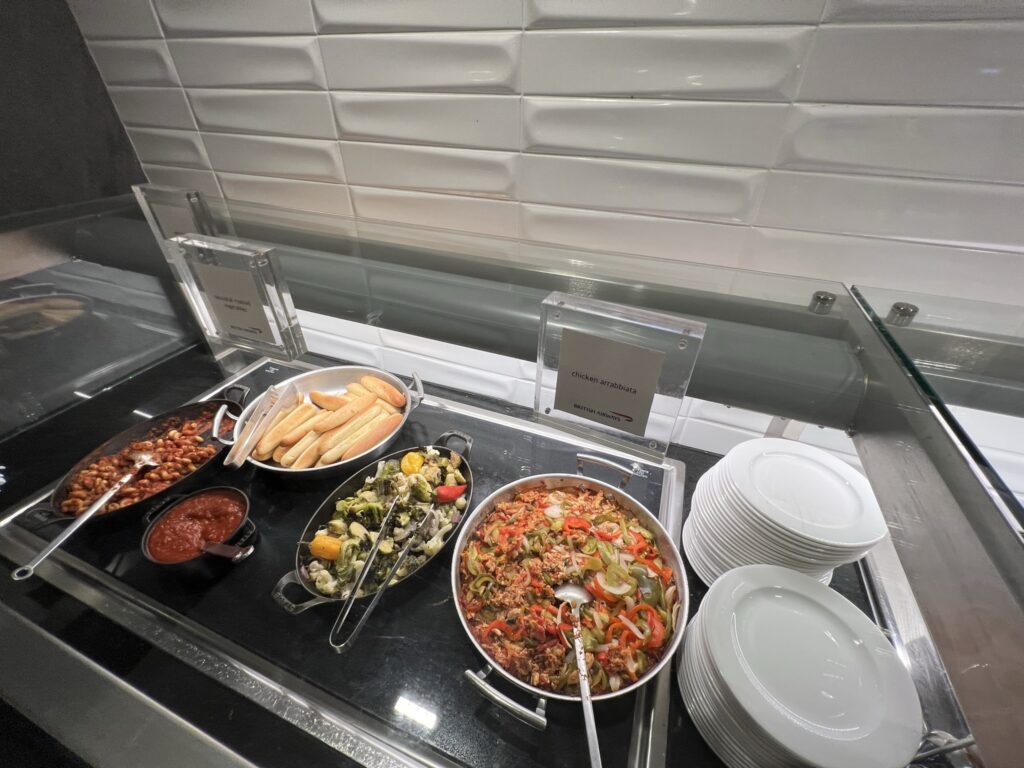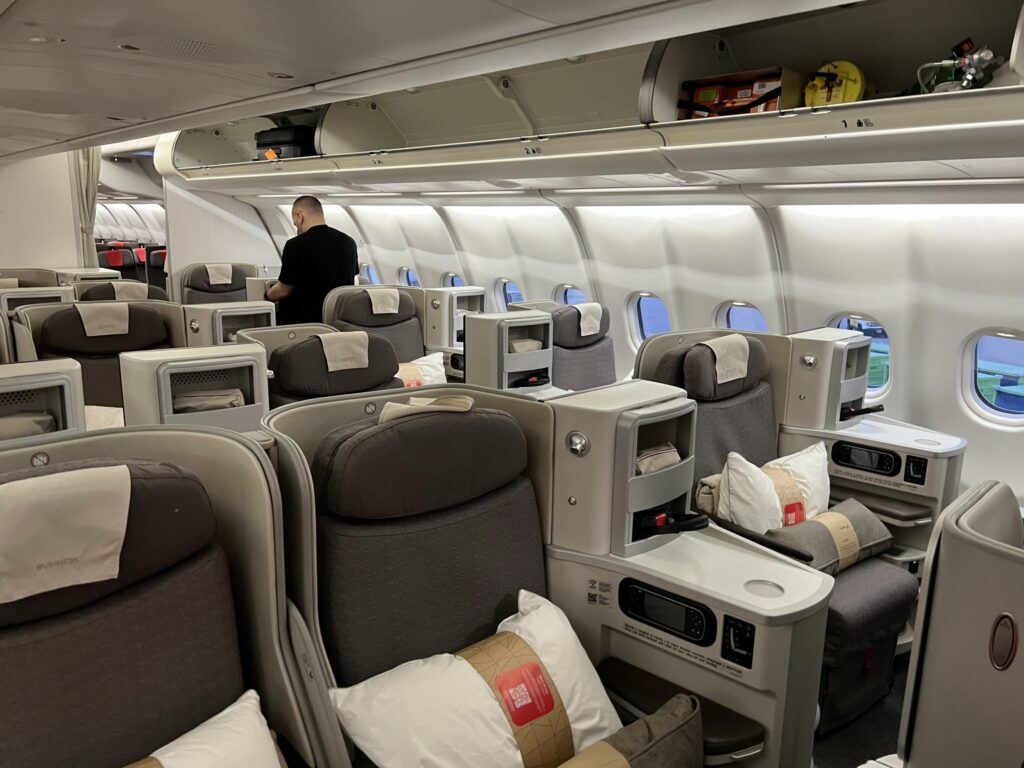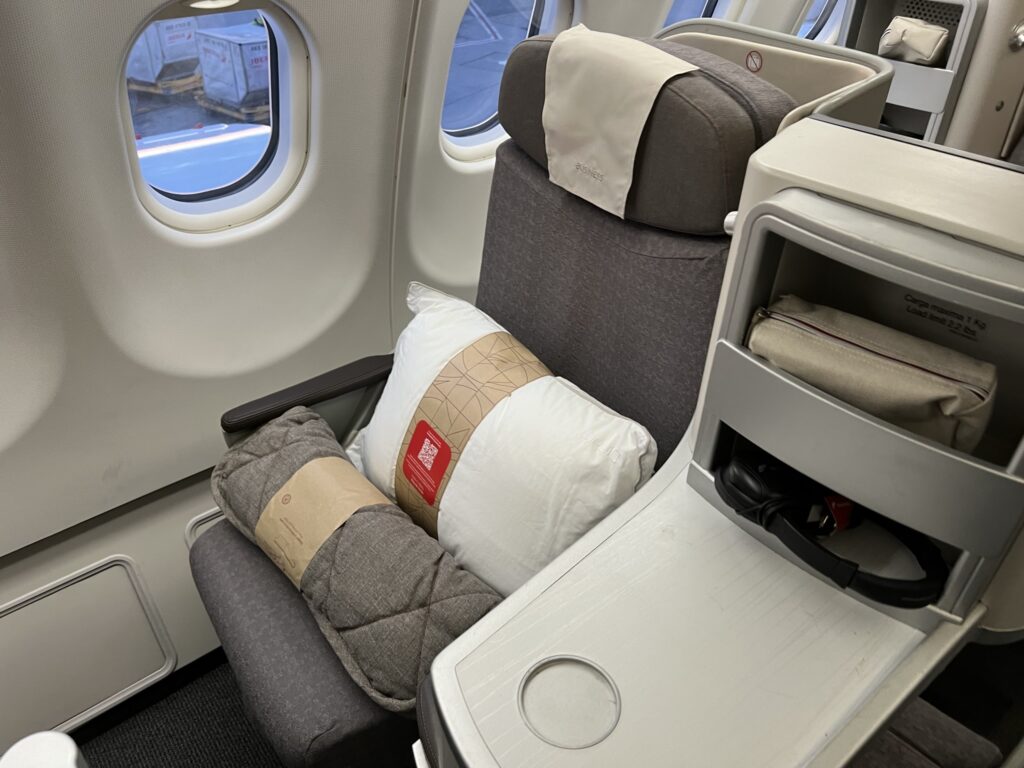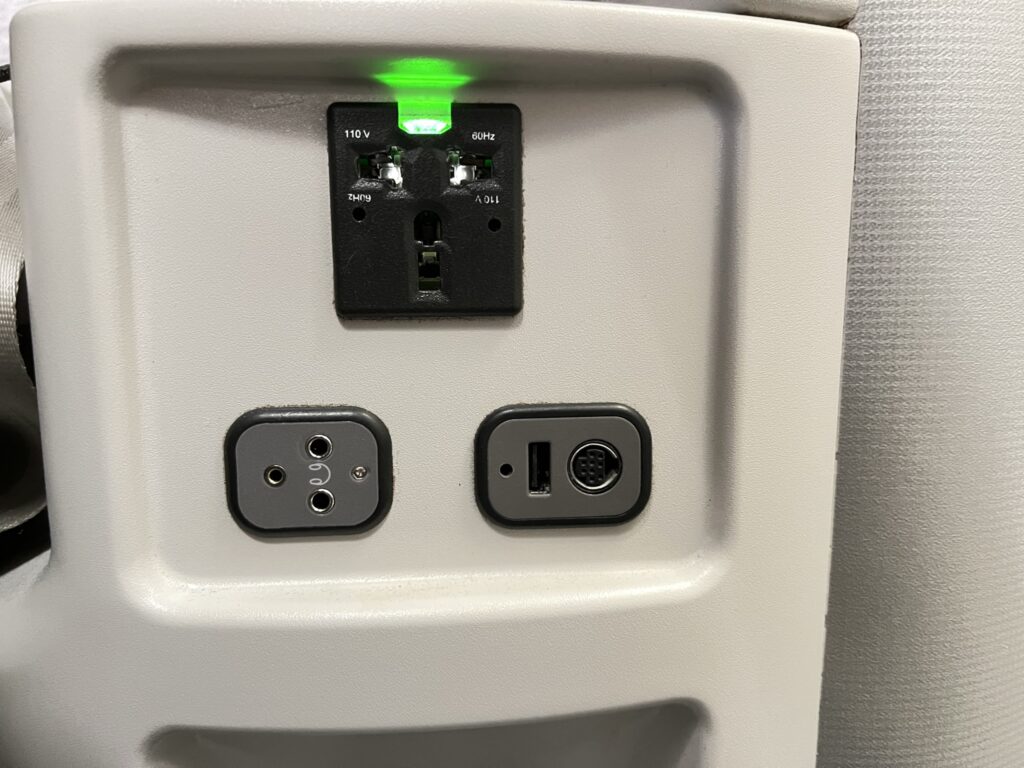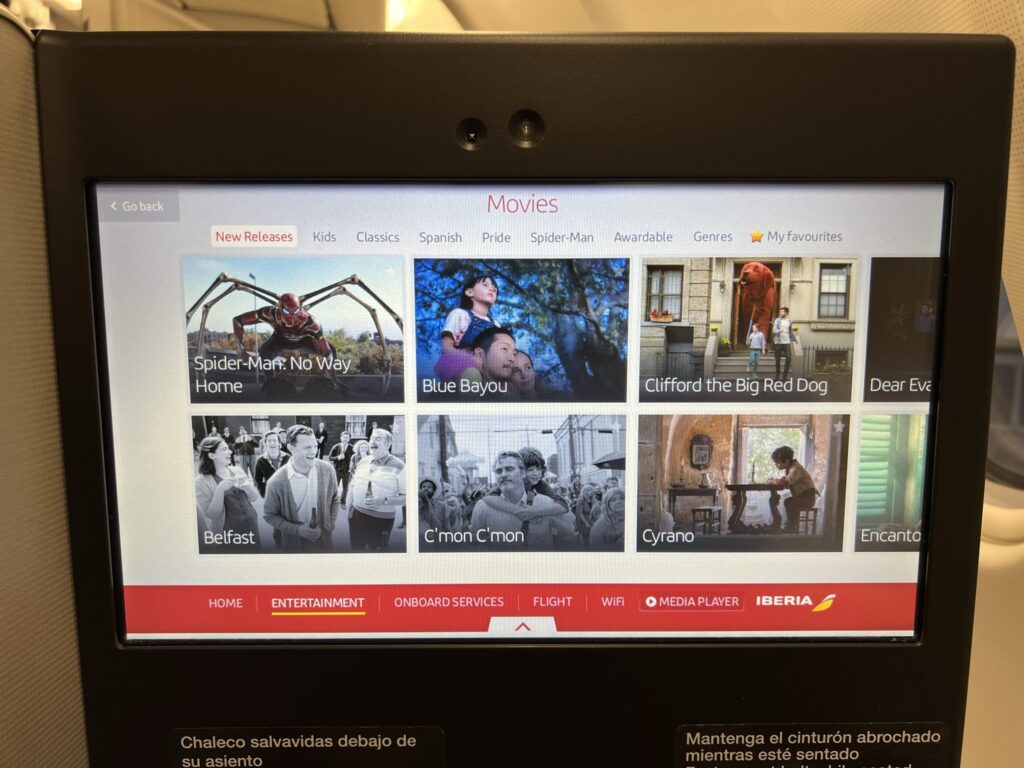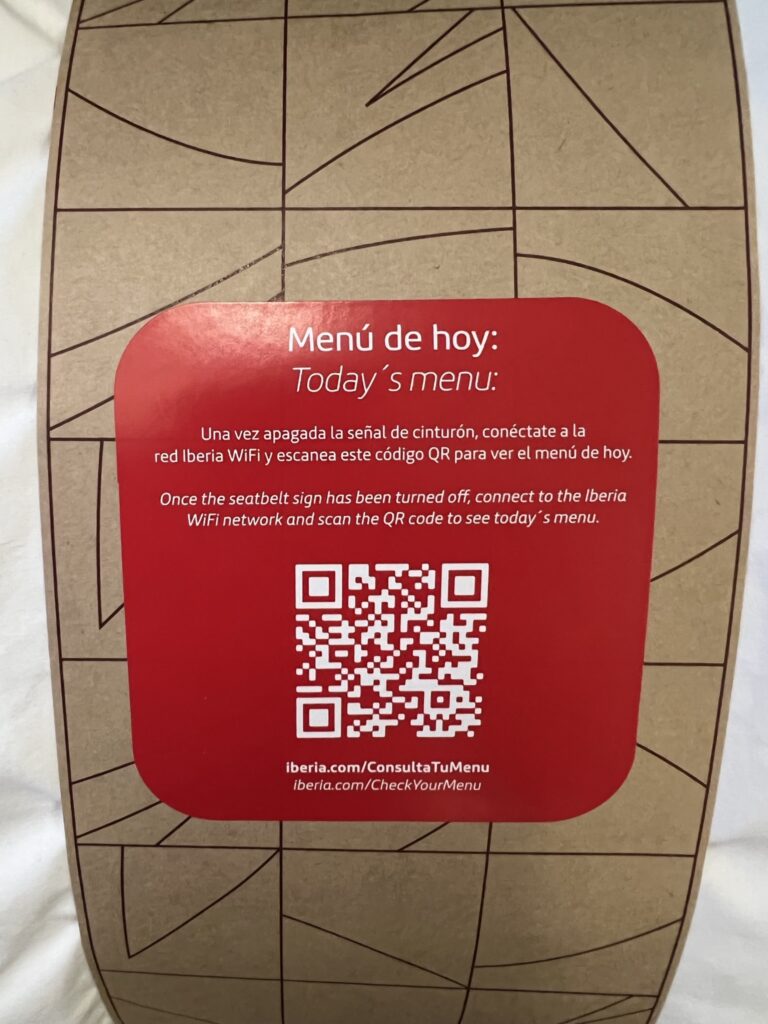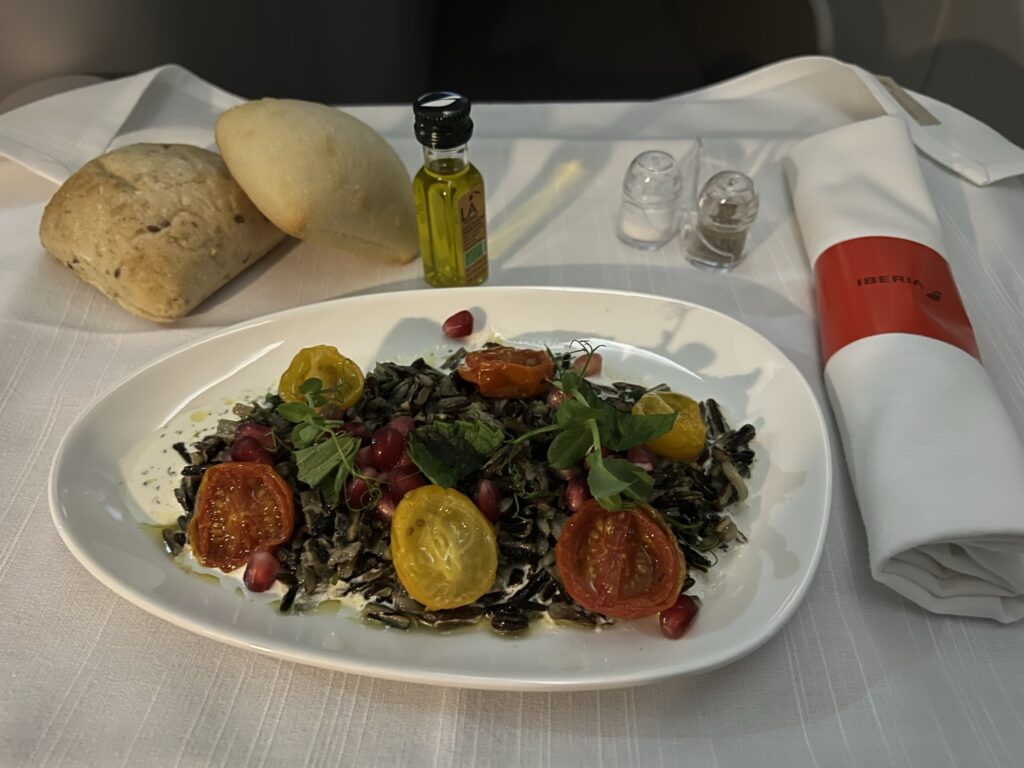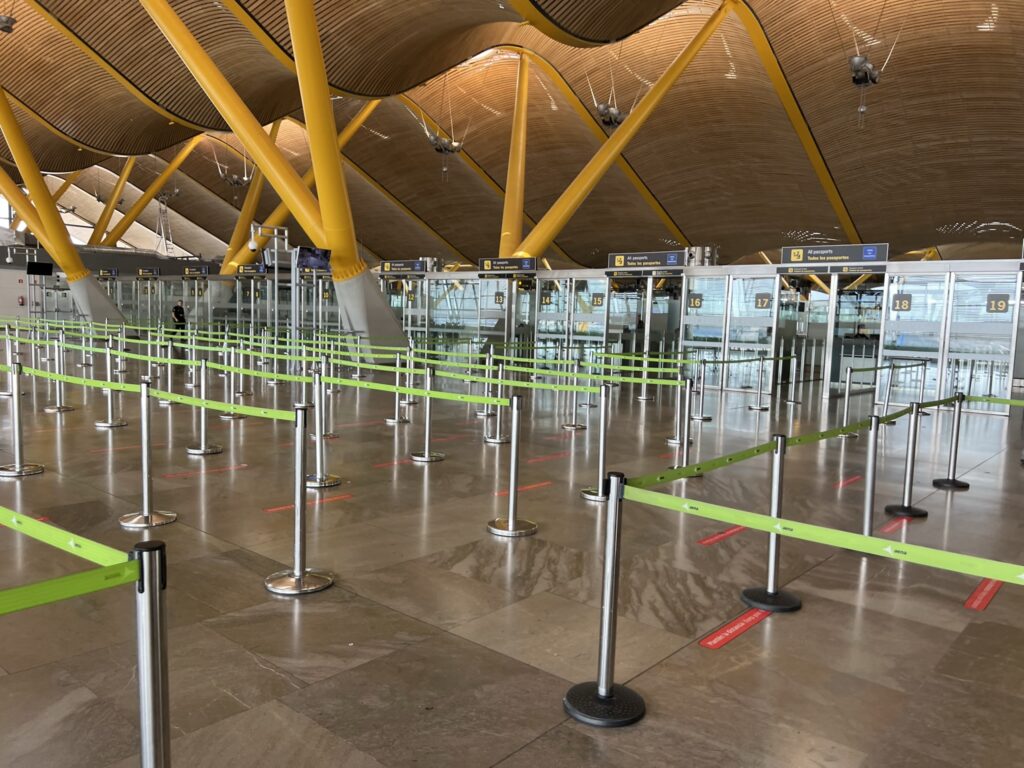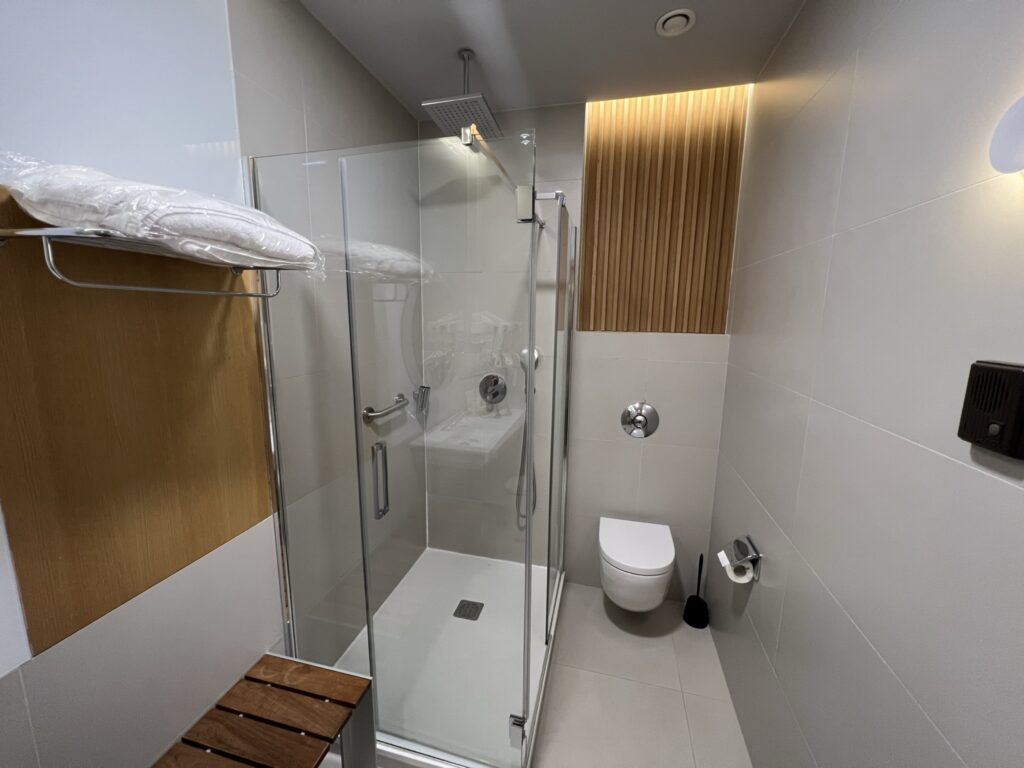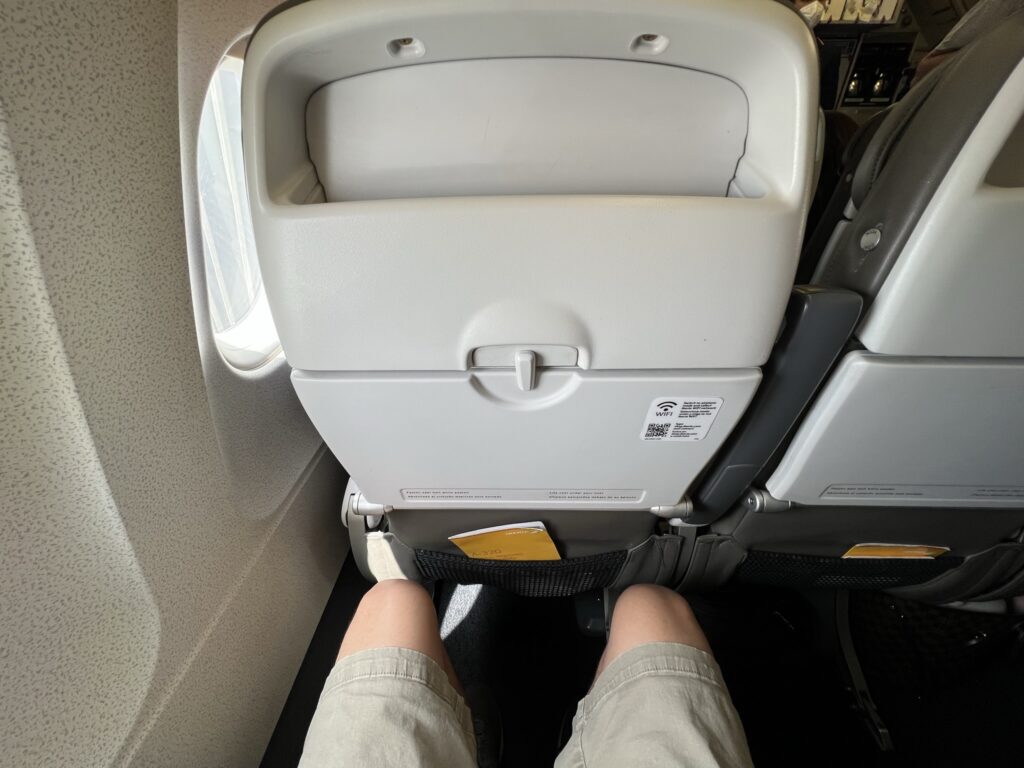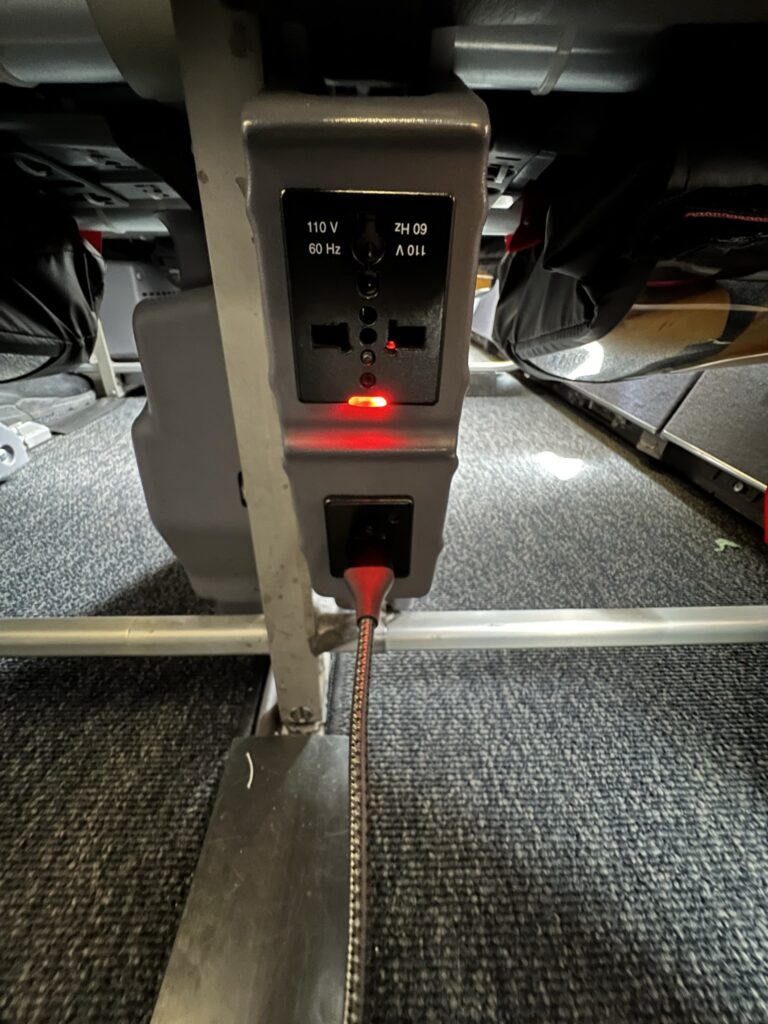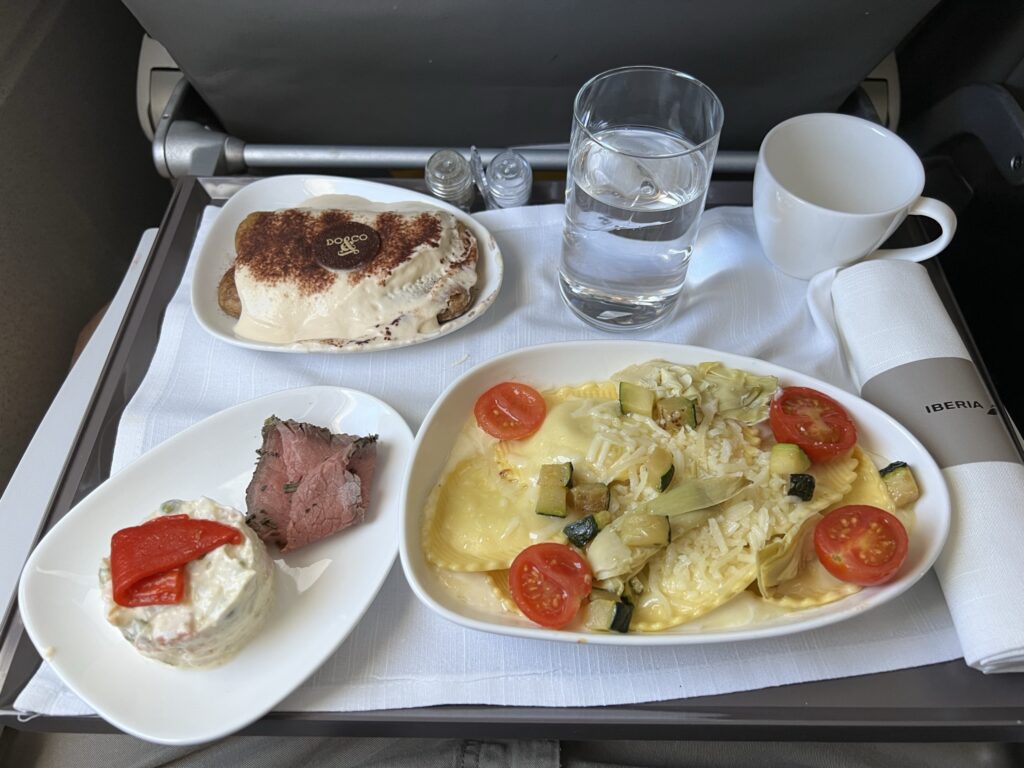 After COVID resulted in the cancellation of the Aircraft Interiors Expo for 2020 and 2021, I couldn’t have been more excited to head back to Germany for the 2022 show. I snagged a great business class fare, split between IAG group carriers British Airways and Iberia, for travel from New York to Hamburg. Spanish carrier Iberia operated my first set of flights out of JFK via Madrid, and is the focus of this trip report.
After COVID resulted in the cancellation of the Aircraft Interiors Expo for 2020 and 2021, I couldn’t have been more excited to head back to Germany for the 2022 show. I snagged a great business class fare, split between IAG group carriers British Airways and Iberia, for travel from New York to Hamburg. Spanish carrier Iberia operated my first set of flights out of JFK via Madrid, and is the focus of this trip report.
Booking through British Airways for an Iberia flight led to some annoyances right out of the gate. I was unable to upload my proof of COVID vaccination to either airline — as is required by Germany for entry — so I needed to check-in manually at JFK’s Terminal 7 counters. I had to wait a few minutes to be seen, but the checkin process was swift once initiated. Iberia is one of the very few remaining airlines operating out of the United States that does not participate in the TSA PreCheck program, a baffling omission when much smaller airlines do so.
Iberia utilizes the British Airways lounge at JFK, but I had to find out the hard way that Iberia passengers are not granted access to the full pre-flight dining experience in the lounge. As my departure was scheduled for 9pm I was hoping to eat a good meal before boarding, but was left with the few mediocre buffet items on offer in the main portion of the lounge. I’m not sure why a British Airways-ticketed customer would be treated differently when flying on a partner airline in the same multi-national holding company, but that is the policy.
Boarding commenced roughly on-time and I quickly got situated in my seat. Iberia’s Airbus A330 fleet is configured with a decent business class product, but it’s far from the latest and greatest. Half of the window seats in the staggered 1-2-1 layout are actually up against the window and afford a decent amount of privacy, while the other “window” seats are extremely exposed to the aisle.
I was able to snag a true window seat and the extra privacy led to a somewhat decent night’s sleep — a rarity for me on red-eye flights.
The seat is kitted out with an AC power outlet, USB-A port, two-pin headphone jack, touchscreen IFE remote control and a moderately large screen.
No overhead air vents were available on this A330-200. The movie selection was quite decent and IFE content was available as soon as I sat down.
Iberia uses a number of different inflight connectivity solutions across its fleet, with the A330-200 sporting Panasonic’s Ku-band satellite-based system. I had no interest in paying for Internet on this red-eye flight, but I did enjoy the free messaging option, available to passengers in business class or Iberia Plus members.
I don’t believe printed menus were available. But a prominent QR code, printed on the paper packaging of the pillow set, led to a menu.
The meal service was a decent multi-course affair with the appetizer hitting my tray table about 35 minutes into the flight, and the main course about 20 minutes after that. I always appreciate expedited service on an overnight flight, especially with such a late departure.
We arrived in Madrid a bit behind schedule, and parked at the extreme end of the terminal. I braced for crowds as I walked to catch my connecting flight to Hamburg. Mercifully, however, Madrid–Barajas Airport was a ghost town.
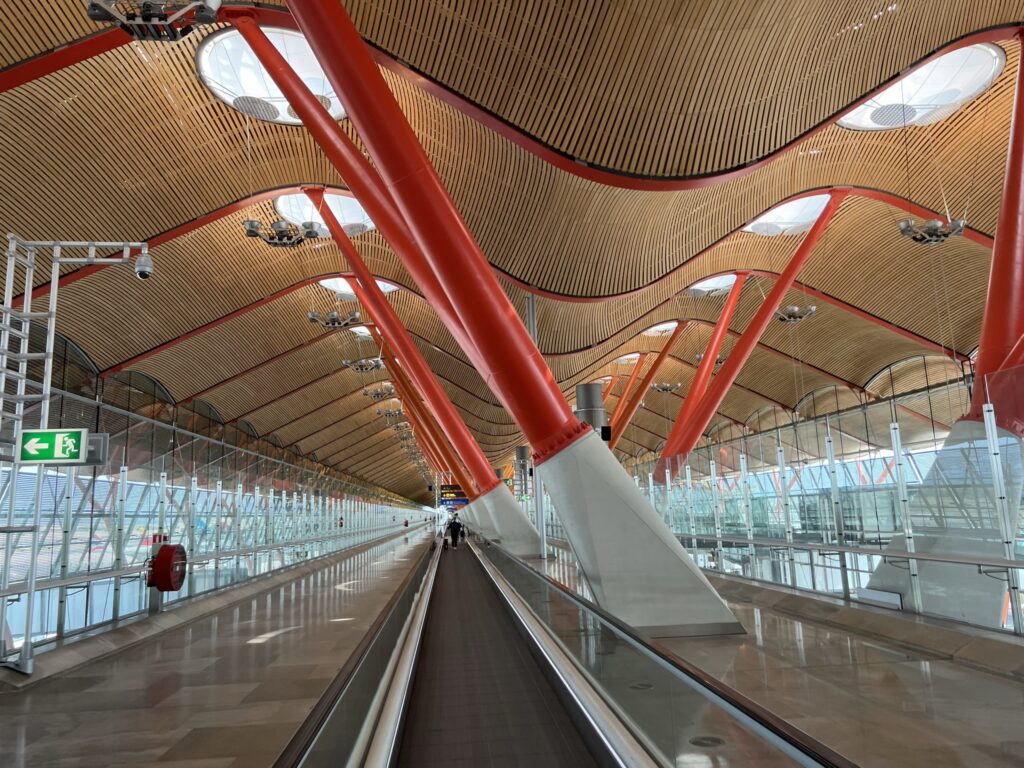 I breezed through the passport check, hopped on a train to connect from the T4S satellite building to T4, and went through security with no delay.
I breezed through the passport check, hopped on a train to connect from the T4S satellite building to T4, and went through security with no delay.
I even had time to pop into Iberia’s beautiful and massive lounge in T4 for a shower and snack before my next departure.
This may have been one of my easiest ever connections, amidst endless reports of European airport chaos.
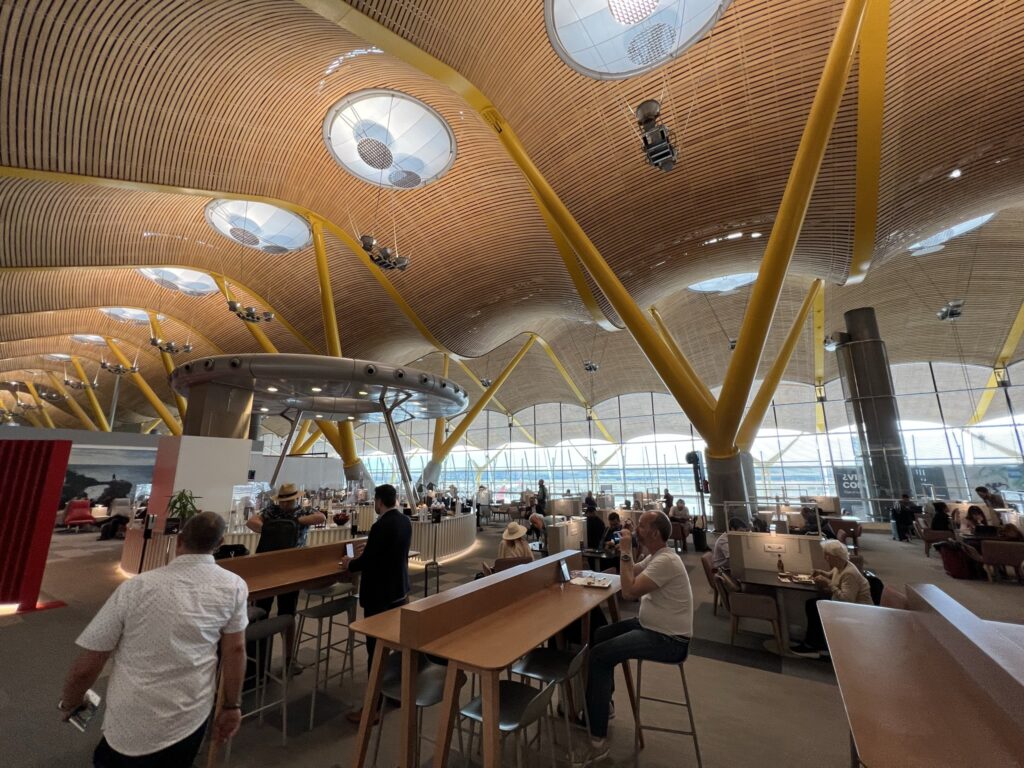 The connecting flight to Hamburg boarded on-time.
The connecting flight to Hamburg boarded on-time.
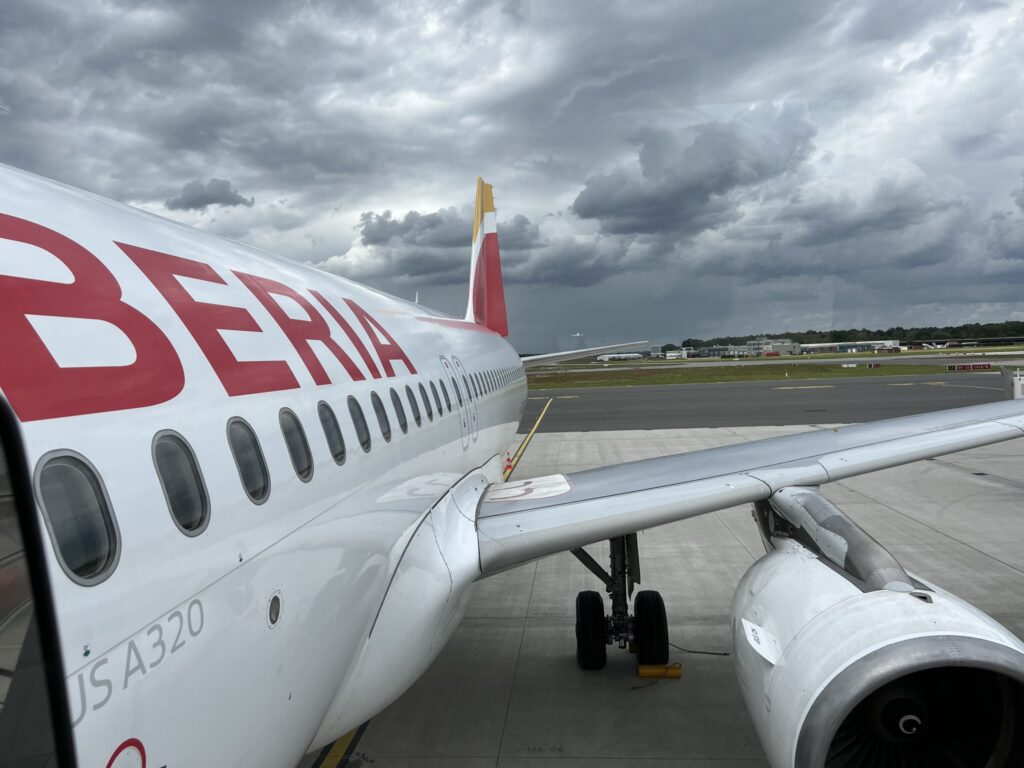 I settled into the “Eurobiz” seat and cranked up the overhead air vent on this very hot day in Madrid. I’m not a fan of the adjacent unoccupied seat style of European business class, but it’s better than being shoulder-to-shoulder in economy.
I settled into the “Eurobiz” seat and cranked up the overhead air vent on this very hot day in Madrid. I’m not a fan of the adjacent unoccupied seat style of European business class, but it’s better than being shoulder-to-shoulder in economy.
The seat featured an AC and USB-A port, but neither were active until I asked the cabin crew at cruise to switch them on. I’m not sure why this isn’t an automatic function, or if the crew would have turned it on without my prompt, but I was happy to be able to charge up my devices.
Due to high pricing, I passed on the Inmarsat/Deutsche Telekom European Aviation Network-powered connectivity aboard this flight. There was no free messaging plan as had been offered on the longhaul flight. A ”Browse and Stream” flight pass was offered for €10.49.
The meal served on this connecting flight was, in my opinion, far superior to the longhaul meal.
I was prepared for a small snack but instead was presented with a substantial and very tasty ravioli dish, a side of what I believe was roast beef and potato salad, and a very tasty tiramisu dessert.
Arrival into Hamburg was right on time, and buses were even ready to accept passengers as we arrived at the hard stand.
Overall, I was quite impressed by the Iberia experience and crew. Nothing offered was particularly cutting edge or industry leading, but outside of Iberia’s poor IT integration with British Airways, the entire trip was well executed.
Maybe I got lucky with an effortless connection at Madrid this time, but a little luck goes a long way these days.
- A340 short-hop underscores mundane nature of Iberia narrowbodies
- BA’s EAN: 1.5 Mbps just doesn’t cut it in 2022
- Iberia Express short-haul passenger experience proves mixed bag
- TAP A321neo shorthaul business: a new standard for Eurobiz?
- Air France onboard experience impresses on short flights
- Iberia CCO explains carrier’s long-haul IFEC decisions
- Iberia CCO details first routes to see new premium economy cabins
All images credited to the author, Jason Rabinowitz





